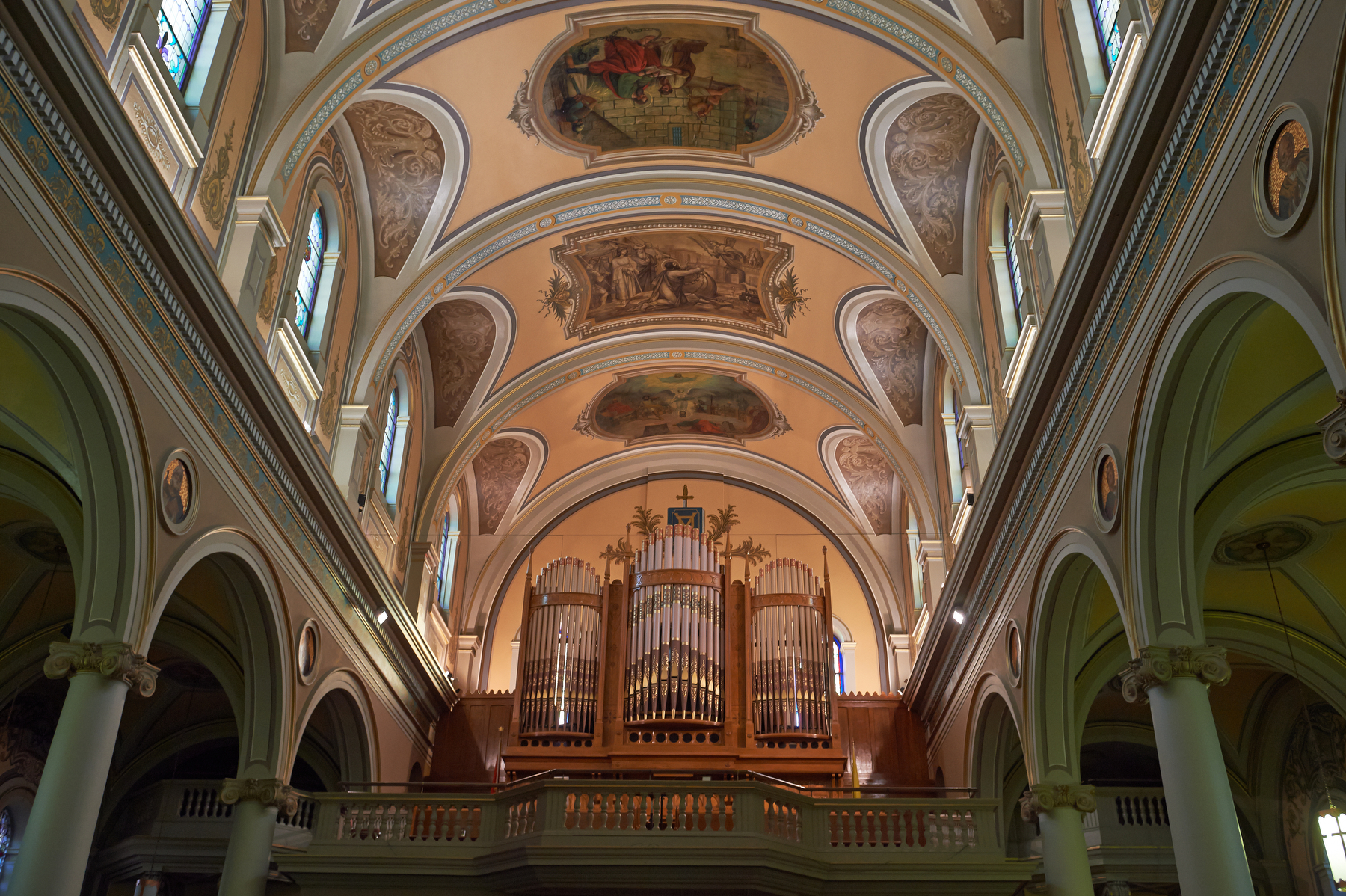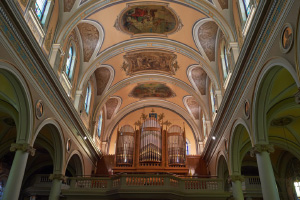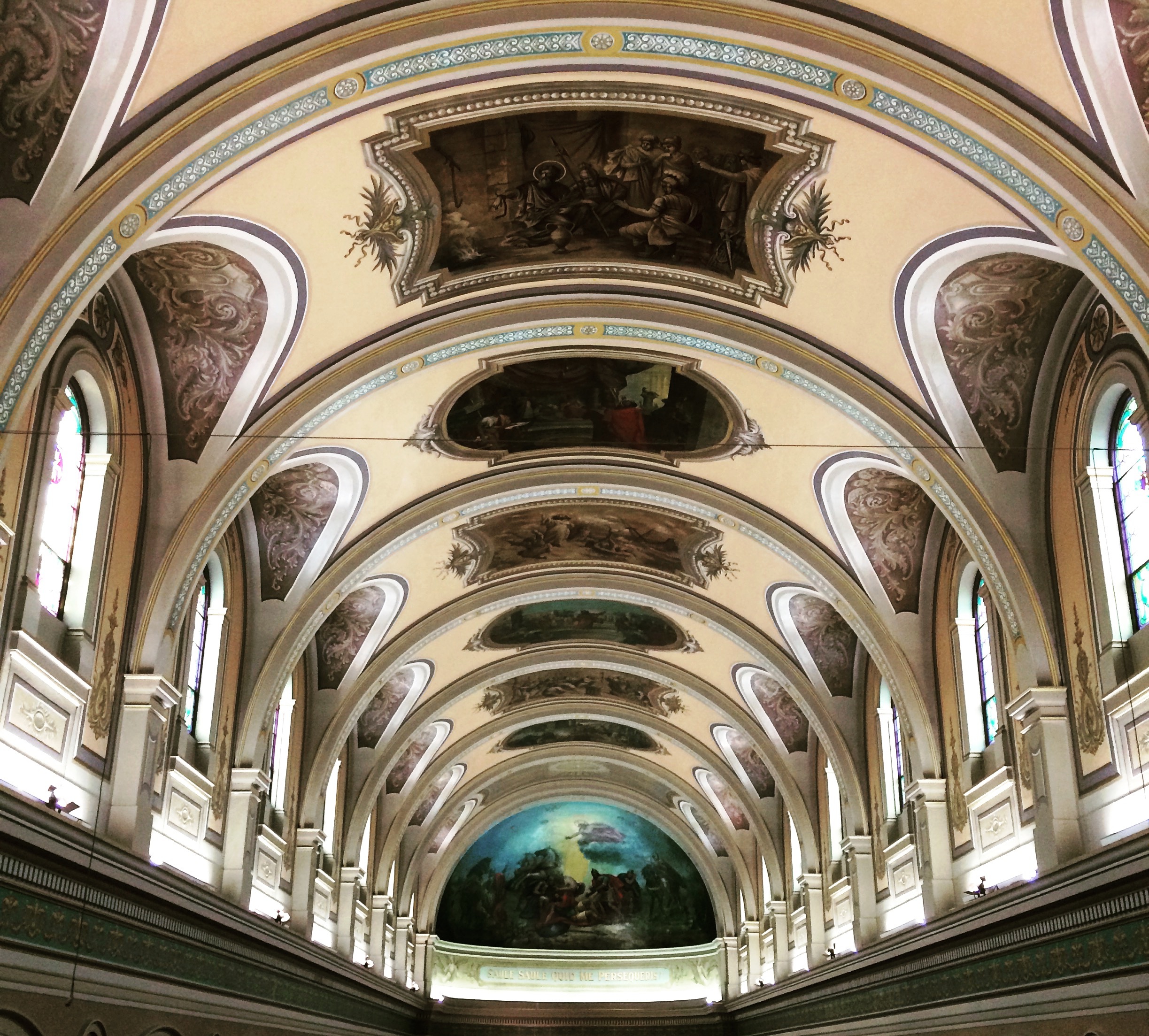David Richards, Toronto Concert Reviews. The lights dimmed at St. Paul’s Basilica bringing a hush over the capacity audience and suddenly heavenly a cappella sounds began wafting down from the balcony in the rear of the church. Since 2007, the Toronto Mendelssohn Choir has made it a tradition to present a concert of music appropriate for Holy Week in one of the most beautiful churches in Toronto on one of the Christian church’s holiest days, Good Friday. As the choir began to sing, I squelched the temptation to look back; looking upward at the colourful ceiling paintings of the life of Paul was as far as I dared turn my head. I was transfixed in the moment. The words of Behold the Tabernacle of God reinforced the feeling that I was in a ‘sacred’ space.
Tag: Lukaszewski
Good Friday with the Toronto Mendelssohn Choir
The concert opened with Gregorio Allegri’s Miserere mei, Deus -- the piece that will forever be associated with the brilliance (and cheekiness) of Mozart, who, at the age of fourteen, wrote it down from memory after just one hearing. With the Miserere, Edison established an aesthetic tone that would govern most of the program: a precise and spacious treatment, notable for perfect intonation and for its restrained approach to tempo and dynamics. I don’t know who the unnamed stratospheric soprano was whose voice soared above all others, but her contribution was impressive.
Toronto Mendelssohn Choir soars in a heavenly a cappella performance of sacred music!
David Richards, Toronto Concert Reviews. The pared down version of the choir, The Mendelssohn Singers, sang the first half of the program from the balcony above and behind the nave. The positioning gave a wonderfully mystic effect to the music, allowing the audience to focus on the sounds that reverberated off the arched columns and the vaulted ceiling of the ornately decorated church. The music of Allegri, Pärt and Sanders all made use of plainsong and choral responses to give life to the texts. The recurring solo treble descants in Allegri's Miserere Mei, Deus were particularly beautiful, the high “C” ringing throughout the church. This was a cappella singing at its finest.
Sacred Music for a Sacred Space, April 2017
The Toronto Mendelssohn Choir returns to the beautiful setting of St. Paul’s Basilica for its annual Good Friday concert of sacred choral music. This year, the Choir will present an all a cappella program, filling the Basilica with only the sound of 4-part and 8-part vocal harmony. There will be two performances: Wednesday April 12 and Good Friday, April 14, at 7:30 pm.
Sacred Music for a Sacred Space 2017 Program Notes
Noel loves the rich choral repertoire of the entire Easter season, and enjoys combining ancient music with contemporary. “The new has often been influenced by the old,” he says. “It’s like living in a modern house but with wonderful antique furnishings throughout. Both are worthy and both provide the sense of calm and personal reflection I love.”
A wondrous variety
The 2013 Good Friday concert at St. Paul’s Basilica featured the Mendelssohn Singers, the 70-voice choir formed in 2003 from the ranks of the Toronto Mendelssohn Choir. As in previous Good Friday concerts, music from various eras was sung (in this case from the 16th to the 21st centuries) and once again the choir used various spaces within the church to wonderful effect.
Sacred Music for a Sacred Space 2013 Program Notes
Except for a couple of years at the Dresden Court, Antonio Lotti (c.1647-1740) spent his career in Venice, working his way up from singer to organist to maestro di cappella at St. Mark’s Basilica. Lotti was an innovative composer of almost thirty operas, but in his sacred music he tended to rely on the great traditions of Renaissance polyphony. J.S. Bach, G.F. Handel and Felix Mendelssohn all knew and admired his music. Today he is known almost exclusively for his many settings of the Crucifixus text from the Credo of the mass. Why he wrote so many has remained a mystery but it may have been for insertion into mass settings by other composers.




